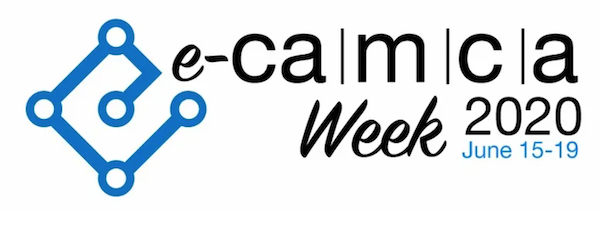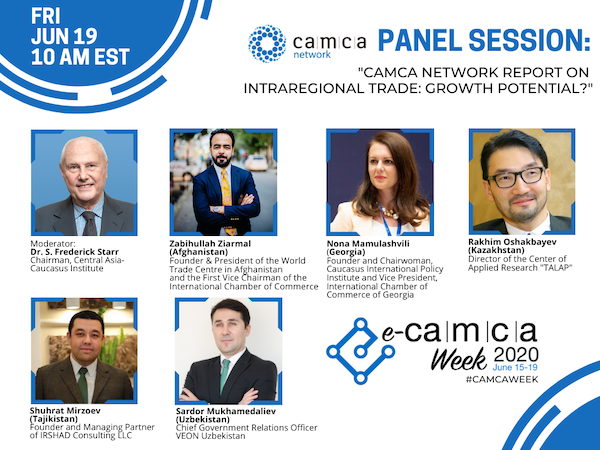[Video Posted] CACI Online Forum: Kazakhstan Beyond Headlines: One Year of Mr. Tokayev's Presidency
Kazakhstan Beyond Headlines: One Year of Mr. Tokayev's Presidency
Speakers:
H.E. Yerzhan Ashikbayev, Deputy Minister of Foreign Affairs of Kazakhstan
Ambassador Bolat Nurgaliyev, Deputy Chairman of Foreign Policy Research Institute
Introduction by:
S. Frederick Starr, Chairman, Central Asia-Caucasus Institute at AFPC
Moderator:
Svante Cornell, Director, Central Asia-Caucasus Institute
When: Wednesday, July 8, 2020 at 10am EDT
The event was live-streamed on our Facebook page and is now available on Youtube.
CACI and the Rumsfeld Foundation hosted e-CAMCA Week 2020
In lieu of our in-person annual gathering, the CAMCA Regional Forum organizers are hosting a virtual e-CAMCA Week.
The June 2020 CAMCA Forum, to be held in Almaty, Kazakhstan, was postponed until June 2021. In its place, CACI and the Rumsfeld Foundation organized the e-CAMCA week of online events and publication. Find recordings of the e-CAMCA Week virtual events held over June 15th-19th at the CAMCA Forum YouTube Channel, as well a variety of original #CAMCAweek publications and resources for our CAMCA Forum community at www.camcaforum.org,.

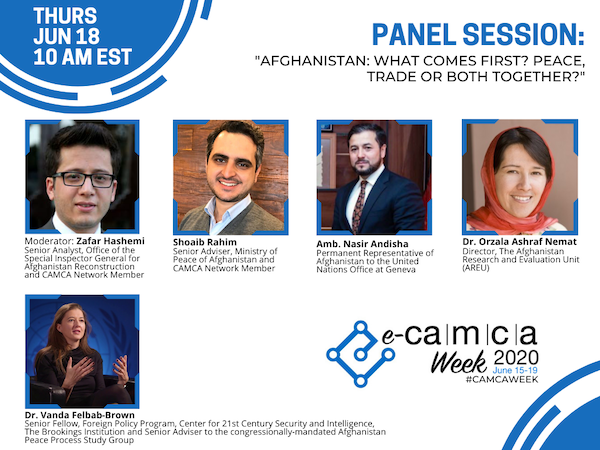
E-CAMCA WEEK PUBLICATIONS
Welcome Letter
Letter from Secretary Donald Rumsfeld
e-CAMCA Week 2020 participants
Meet CAMCA Entrepreneurs
View features of some successful regional entrepreneurs from our CAMCA Network
"Caucasus & Central Asia Post COVID-19" Series- Volume I
Digital Transformation in the CAMCA Region
Post COVID-19: Challeges & Opportunities for the Region
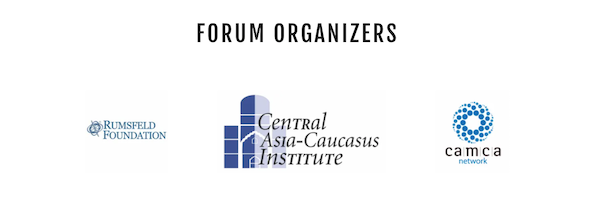
CACI releases Silk Road Papers on State and Religion in Kyrgyzstan and Turkmenistan
Religion and the Secular State in Central Asia: The Examples of Kyrgyzstan and Turkmenistan

This event marked the publication of two Silk Road Papers on the state-religion relationships in Central Asia, a study of Kyrgyzstan by Johan Engvall and one on Turkmenistan by Victoria Clement. This forms part of the ongoing research effort on secular governance, religion and politics at the Central Asia-Caucasus Institute & Silk Road Studies Program Joint Center, and follows the publication of studies on Azerbaijan, Kazakhstan and Uzbekistan.
Johan Engvall’s study of Kyrgyzstan’s experience is timely given that country’s experience, starting with a more permissive atmosphere that subsequently aligned itself with policies in the rest of the region. Victoria Clement’s study of Turkmenistan is the first treatment of the subject to appear in print, and sheds light on the similarities of Turkmenistan’s approach with the rest of Central Asia as well as its specificities.
Speakers:
Victoria Clement, Eurasia Regional Analyst, Center For Advanced Operational Culture Learning, Marine Corps University
Johan Engvall, Senior Research Fellow, Foreign Policy Research Institute
Moderator: Svante E. Cornell, Director, Central Asia-Caucasus Institute at AFPC
When: Monday, June 15, 2020 at 10am EDT
The Event was live-streamed on our Facebook page and is available on our YouTube page and here.
CACI Director Svante E. Cornell Interview on AFPC Insights Episode 5: The Changing Politics of Central Asia
On June 26, CACI Director, Dr. Svante E. Cornell discussed the recent e-CAMCA (Central Asia, Mongolia, Caucasus, Afghanistan) regional conference organized by CACI and the Rumsfeld Foundation, the region's response to COVID-19, progress with political and economic reforms, risks and opportunities for regional states with regard to China-U.S.-Russia competition in the region.
Listen to the extended interview with a q&a session: https://bit.ly/3g0nqk5
Watch the recording of the interview: https://www.youtube.com/watch?v=yPBMeP0yZGA
Scroll down to listen to the full recording of the event.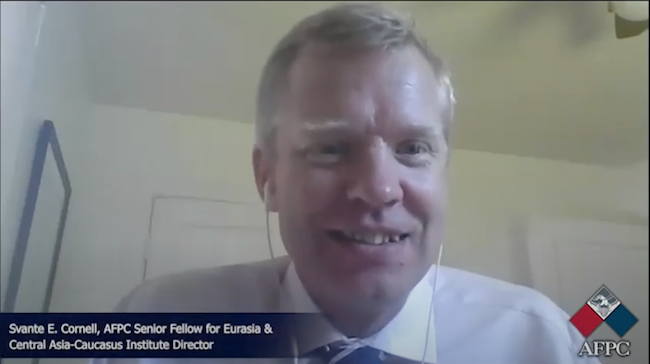
[Video Posted] CACI Online Forum: Kashgar Coerced: Forced Reconstruction, Exploitation, and Surveillance in the Cradle of Uighur Culture
Kashgar Coerced: Forced Reconstruction, Exploitation, and Surveillance in the Cradle of Uighur Culture
Moderator: S. Frederick Starr, Chairman, Central Asia-Caucasus Institute at AFPC
When: Wednesday, July 15, 2020 at 10am EDT
The event was live-streamed on our Facebook page and is now available on Youtube.
